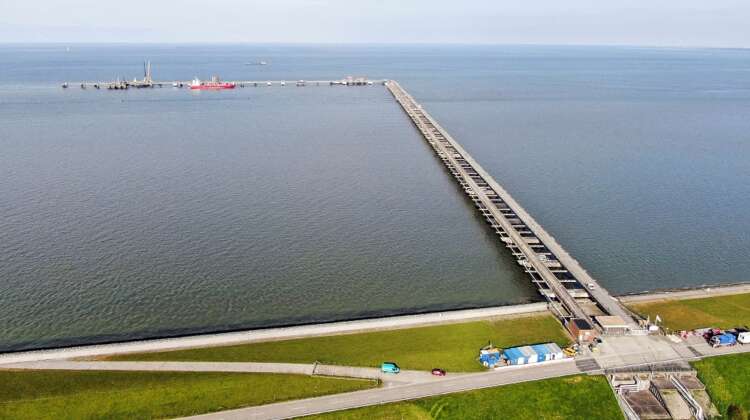Top Stories
German energy regulator to slash LNG feed-in rates
Published : 3 years ago, on
FRANKFURT (Reuters) – Germany will slash feed-in rates for pumping liquefied natural gas (LNG) into its pipelines from new floating LNG terminals next year, the network regulator said on Friday, as the country seeks to lessen dependency on pipeline gas from Russia.
The rates for injecting annual and quarterly gas delivery volumes from LNG points into long-distance transmission pipelines will be cut by 40% relative to onshore tariffs, said the regulator.
The agency governs such tariffs in a regulated sector where consumers share the cost of grid transport as part of their bills.
“With the discount, we are setting appropriate fees at feed-in points from LNG landing points without losing sight of the interests of other network users,” said Klaus Mueller, president of the Federal Network Agency, the Bundesnetzagentur.
Germany last month cleared the way for four floating storage and regasification units (FSRUs) to operate along its North Sea coast in order to secure more LNG and diversify its gas supplies away from Russia.
The statement by the Bonn-based Bundesnetzagentur said the discount would make Germany’s LNG transmission competitive with that of the Netherlands and France, where there are already huge costal terminals.
The European Union’s high-pressure pipeline grids that criss-cross the continent and the expanded LNG infrastructure will need aligning under single energy market rules, the regulator said.
These seek to harmonise economic benefits for member states and allow transmission system operators (TSOs) to run and balance the interdependent systems.
(Reporting by Vera Eckert, editing by Rachel More and Kirsten Donovan)

-
Finance3 days ago
Phantom Wallet Integrates Sui
-
Banking4 days ago
Global billionaire wealth leaps, fueled by US gains, UBS says
-
Finance3 days ago
UK firms flag over $1.4 billion in labour costs from increase in national insurance, wages
-
Banking4 days ago
Italy and African Development Bank sign $420 million co-financing deal







